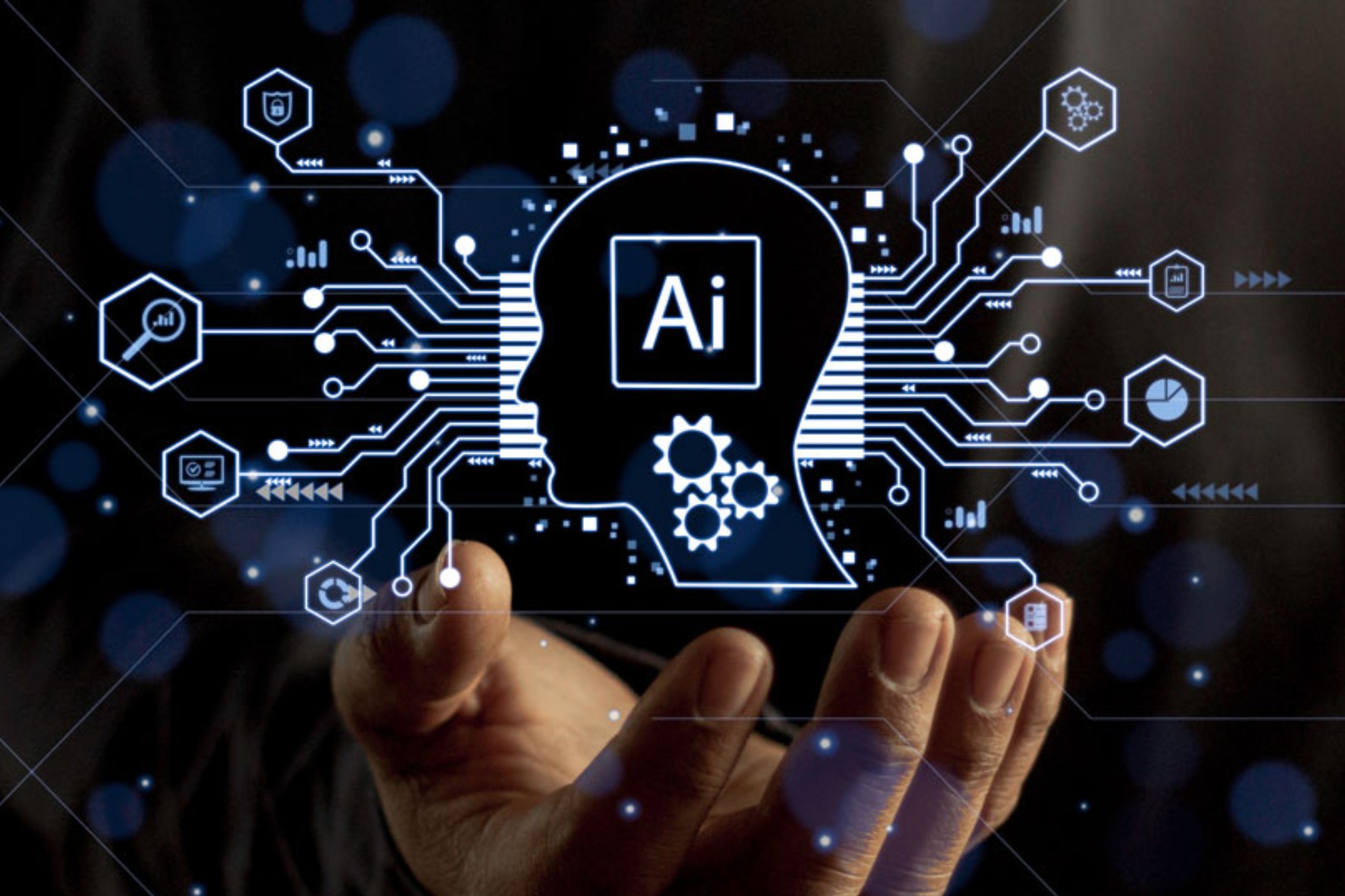
Will AI Replace IT Managed Services
The rapid advancement of artificial intelligence (AI) has sparked debates across various industries, particularly in the realm of information technology (IT) managed services. As organizations increasingly rely on technology to operate efficiently, the question arises: will AI eventually replace traditional IT managed services? This article explores the evolving landscape of IT services, the role of AI, and the potential implications for businesses and service providers.
The Current State of IT Managed Services
IT managed services encompass a broad range of functions, including network management, cybersecurity, data backup, and technical support. These services are essential for businesses that may not have the resources or expertise to manage their IT infrastructure effectively. Managed service providers (MSPs) offer expertise, reliability, and scalability, allowing organizations to focus on their core operations. By outsourcing these critical functions, companies can not only reduce operational costs but also gain access to advanced technologies and specialized knowledge that may otherwise be out of reach.
a. Understanding Managed Services
Managed services operate on a subscription-based model, providing clients with ongoing support and maintenance. This approach allows businesses to predict their IT costs and ensures that they have access to the latest technology and best practices. MSPs typically employ a team of skilled professionals who monitor systems, troubleshoot issues, and implement upgrades as needed. Furthermore, many MSPs offer tailored solutions that align with the specific needs of their clients, ranging from small startups to large enterprises, ensuring that every organization can find a service package that suits its unique requirements.
b. Challenges Faced by Managed Service Providers
Despite their advantages, MSPs face several challenges in the current market. The rapid pace of technological change means that service providers must continuously adapt to new tools and methodologies. Additionally, the increasing complexity of IT environments, coupled with the growing threat of cyberattacks, places additional pressure on MSPs to deliver high-quality services consistently. Furthermore, the demand for compliance with various regulations, such as GDPR and HIPAA, adds another layer of complexity, requiring MSPs to stay informed and agile in their service offerings. As clients become more aware of these compliance issues, they expect their MSPs to not only understand the regulations but also to implement robust strategies to ensure adherence, which can strain resources and expertise.
The Rise of AI in IT Services
AI technologies are transforming various sectors, and IT managed services are no exception. From automating routine tasks to enhancing decision-making processes, AI has the potential to revolutionize how IT services are delivered. Organizations are increasingly leveraging AI to improve efficiency, reduce costs, and enhance service quality.
a. Automation and Efficiency
One of the most significant advantages of AI in IT managed services is automation. Routine tasks such as software updates, system monitoring, and data backups can be automated, allowing IT professionals to focus on more strategic initiatives. This not only increases efficiency but also reduces the risk of human error, leading to more reliable service delivery. Furthermore, automation through AI can lead to faster response times, as systems can self-correct or initiate troubleshooting processes without the need for human intervention, thus minimizing downtime and enhancing productivity.
b. Predictive Analytics
AI-powered predictive analytics can help MSPs identify potential issues before they escalate into significant problems. By analyzing historical data and recognizing patterns, AI can forecast system failures, security breaches, or performance bottlenecks. This proactive approach enables organizations to address issues before they impact operations, ultimately enhancing service quality. Additionally, the integration of machine learning algorithms allows for continuous improvement, as these systems learn from new data and adapt their predictions over time, ensuring that the insights provided remain relevant and actionable. This capability not only safeguards the integrity of IT systems but also empowers businesses to make informed decisions based on data-driven insights.
c. Enhanced Security Measures
As cyber threats become more sophisticated, the role of AI in enhancing security measures within IT services cannot be overstated. AI algorithms can analyze vast amounts of data in real-time to detect unusual patterns that may indicate a security breach. By employing machine learning techniques, these systems can evolve and adapt to new threats, providing a dynamic defense mechanism that traditional security measures may lack. Moreover, AI can automate incident response protocols, ensuring that threats are neutralized swiftly and efficiently, thereby minimizing potential damage and exposure to sensitive information.
d. Improved Customer Experience
Another area where AI is making significant strides is in improving customer experience. Through the use of AI-driven chatbots and virtual assistants, organizations can provide 24/7 support to their clients, addressing queries and resolving issues in real-time. These AI tools not only enhance customer satisfaction by providing immediate assistance but also gather valuable feedback that can be analyzed to improve service offerings further. By understanding customer behavior and preferences, businesses can tailor their services to meet specific needs, fostering loyalty and long-term relationships.
AI vs. Human Expertise: A Complementary Relationship
While AI offers numerous benefits, it is essential to recognize that it does not replace the need for human expertise. Instead, AI and human professionals can work together to create a more effective IT managed service model. The combination of AI’s capabilities and human intuition can lead to better outcomes for organizations.
a. The Role of Human Professionals
Human professionals bring critical thinking, creativity, and emotional intelligence to the table—qualities that AI cannot replicate. While AI can analyze data and identify trends, it lacks the ability to understand the broader context or make nuanced decisions. IT professionals are essential for interpreting AI-generated insights and implementing solutions that align with organizational goals. Additionally, human experts can draw upon their experiences and intuition to navigate complex problems that require a level of judgment that AI simply cannot achieve. This ability to synthesize information from various sources and apply it to real-world scenarios is what sets human professionals apart in the IT landscape.
b. Enhancing Customer Relationships
Moreover, human interaction remains a vital component of customer service. Clients often seek reassurance and support during technical challenges, which requires empathy and understanding—traits that AI lacks. By leveraging AI for routine tasks, IT professionals can dedicate more time to building relationships with clients, ultimately enhancing customer satisfaction and loyalty. This human touch is particularly important in high-stakes situations where clients may feel vulnerable or frustrated. The ability to listen actively, respond with compassion, and provide tailored solutions can make a significant difference in how clients perceive their service provider. Furthermore, human professionals can gather qualitative feedback from clients, which can be invaluable for refining AI algorithms and improving service delivery, creating a feedback loop that benefits both parties.
c. AI’s Role in Data Management
On the other hand, AI excels in handling vast amounts of data efficiently, automating processes that would otherwise consume valuable time and resources. For instance, AI-driven analytics can sift through historical data to predict future trends, enabling organizations to make proactive decisions. This predictive capability allows human professionals to focus on strategic initiatives rather than getting bogged down in data management tasks. By integrating AI tools, IT teams can enhance their operational efficiency, allowing them to allocate their expertise where it is most needed—on innovative projects that drive business growth. As a result, the collaboration between AI and human professionals not only streamlines operations but also fosters an environment ripe for creativity and innovation.
The Future of IT Managed Services with AI
The integration of AI into IT managed services is not a question of replacement but rather evolution. As technology continues to advance, the role of MSPs will likely shift, requiring them to adapt to new tools and methodologies. Organizations that embrace AI will be better positioned to thrive in this changing landscape.
a. New Service Offerings
As AI becomes more prevalent, MSPs may develop new service offerings that leverage AI capabilities. For instance, AI-driven cybersecurity solutions can provide enhanced threat detection and response, while intelligent automation can streamline IT operations. These innovative services can help organizations stay ahead of the competition and meet the evolving needs of their clients.
b. Skills Development and Training
To remain relevant, IT professionals must invest in their skills development and training. Understanding AI technologies and how to integrate them into existing workflows will be crucial for MSPs. Organizations that prioritize upskilling their workforce will be better equipped to harness the power of AI and deliver exceptional services.
Potential Risks and Considerations
While the integration of AI into IT managed services presents numerous opportunities, it also comes with potential risks and considerations. Organizations must carefully evaluate these factors to ensure a successful transition.
a. Data Privacy and Security
As AI systems process vast amounts of data, concerns about data privacy and security become increasingly relevant. Organizations must implement robust security measures to protect sensitive information and comply with regulations. Failure to do so can result in severe consequences, including data breaches and reputational damage.
b. Overreliance on Technology
Another consideration is the potential for overreliance on technology. While AI can enhance efficiency, organizations must not lose sight of the importance of human judgment and expertise. Striking the right balance between automation and human intervention is crucial for ensuring effective IT service delivery.
Conclusion
The question of whether AI will replace IT managed services is complex. While AI is poised to transform the industry, it is unlikely to replace the need for human expertise entirely. Instead, a collaborative approach that combines the strengths of AI with the insights of IT professionals will define the future of managed services.
As organizations continue to navigate the challenges and opportunities presented by AI, those that embrace innovation while valuing human contributions will be best positioned for success. The future of IT managed services lies in leveraging technology to enhance service delivery while maintaining the essential human touch that fosters strong client relationships.
In conclusion, rather than viewing AI as a threat to IT managed services, it is more productive to see it as a tool that can enhance the capabilities of service providers. By embracing this technology, MSPs can not only improve their operational efficiency but also provide a higher level of service to their clients, ensuring a mutually beneficial relationship that drives success in the digital age. If you’re looking for Managed IT Services Sydney, now is the time to partner with experts who leverage AI to deliver smarter, more efficient support.
